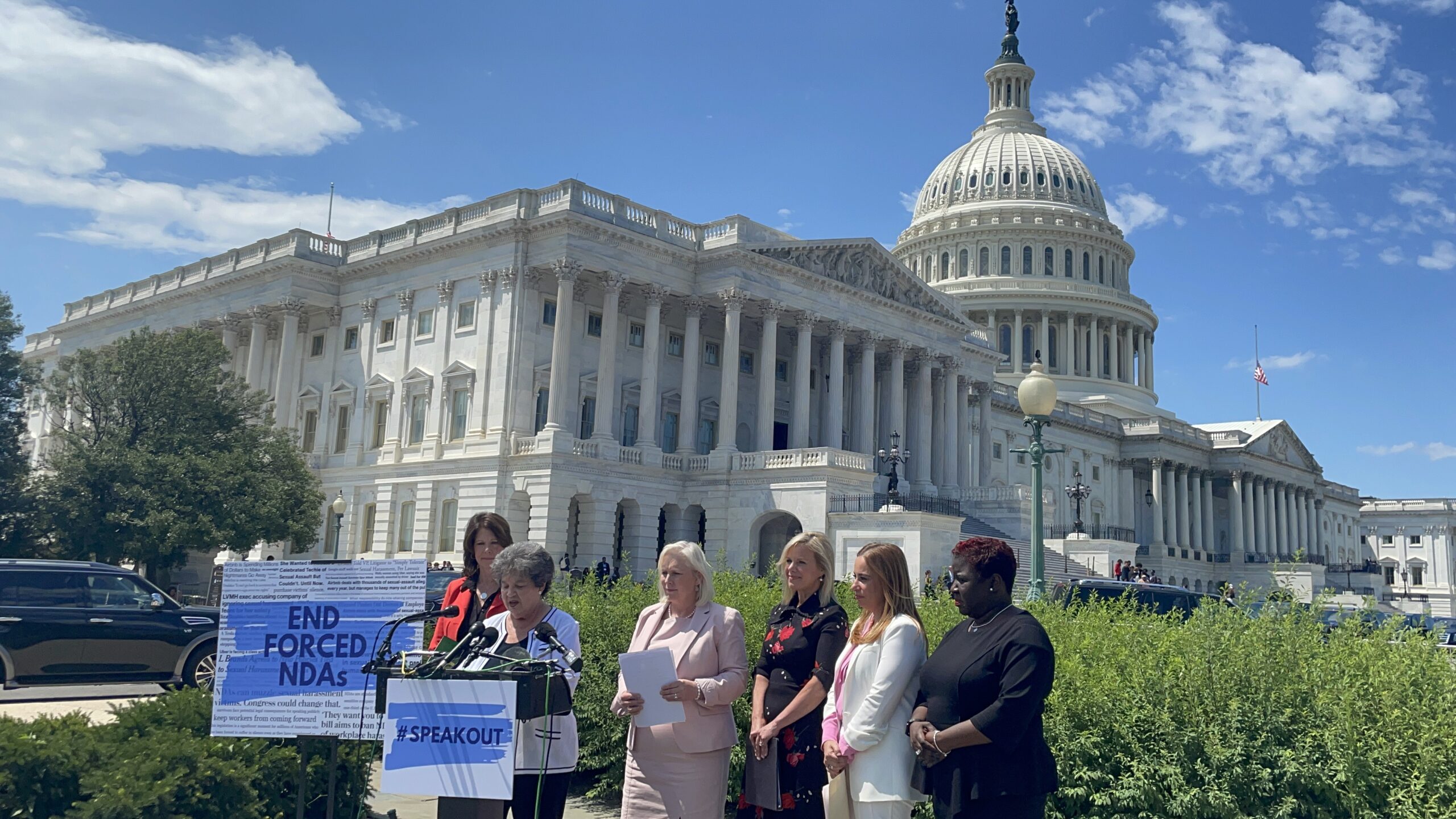Organizations are working hard to retain employees in today’s competitive job market and create healthy cultures that foster productivity. In our view, the most important element is to ensure that toxicity has no place in the workplace.
Today, 30 percent of men and 40 percent of women say preventing sexual harassment, misogyny, and other unfair practices is the No. 1 workplace issue, according to a recent study by ABX. And the way to prevent this type of abuse is allowing for more transparency by removing barriers that silence survivors’ voices.
Nearly three years ago, after our own experiences with workplace toxicity, we founded Lift Our Voices to eradicate the silencing mechanisms that cover up inappropriate behavior, including nondisclosure agreements (NDAs) and forced arbitration clauses.
Nondisclosure agreements prevent employees from talking about the toxicity they experience at work and protect abusers at the expense of survivors. Today, NDAs bind more than one-third of all American workers. There are, of course, times when NDAs are necessary – such as protecting trade secrets or other proprietary information that is critical to a company’s operations. But increasingly, organizations of all types are using these agreements to sweep abuse and toxicity under the rug, prevent survivors from disclosing traumatic incidents to colleagues, friends, and even family, and protecting abusers from any accountability.
The penalties for breaking an NDA can be severe: professional blacklisting, returning a settlement award, or paying a massive fine for telling your own story. But the damage is not only financial. The psychological toll of this enforced silence is devastating, especially when survivors cannot warn others about the predators in their midst.
NDAs are not the only way organizations silence workers. Forced arbitration clauses, which send employees to the secret chamber of arbitration, rather than allowing them to sue in open court, also deny survivors the ability to share their stories publicly. In 1992, just 2 percent of workers were bound by forced arbitration. Now, studies show almost 65 percent of all minimum wage workers have arbitration clauses, and 84 percent of all workers were on track to be bound by the mechanism by 2024.
We are fighting to end forced arbitration, and thanks to bipartisan legislation passed overwhelmingly in both houses of Congress and signed into law by President Biden earlier this year, the practice is now banned in cases of sexual harassment and assault.
Now, we are expanding on this success to ban NDAs in cases where a worker has been subjected to or witnessed sexual harassment and assault. In June, members from both parties of the House of Representatives introduced the Speak Out Act, bipartisan legislation that we have championed from the start and which we are committed to passing. This law will be another crucial step in making the American workplace safer for all.
But while we have much to celebrate, much more remains to be done. Employees still face discrimination resulting from racial, age and gender discrimination. LGBTQ+ and pregnant workers find themselves sidelined too often. We are committed to fighting for meaningful legislation that gives voices back to those workers but it should not require a change in the law for employers to update their practices. Organizations can be proactive, end these silencing mechanisms and be leaders in championing a safer, more productive workplace environment.
Learn more about how your company can join Lift Our Voices in our mission to make work a safe place for everyone by visiting www.liftourvoices.org.


